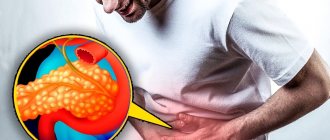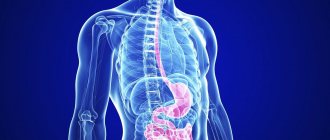Most diseases of the gastrointestinal tract require adherence to a special diet, which excludes the consumption of foods that increase symptoms (stomach pain, heartburn, belching, etc.). Omelette for gastritis is considered a universal dish, allowed both during remission and during exacerbation of the pathology. The product prepared according to the recommendations will bring exceptional benefits and delight you with a pleasant taste.
After a series of diagnostic examinations, patients with gastrointestinal diseases receive medical prescriptions. However, in addition to taking medications, a special therapeutic diet is required. At this stage, many patients are wondering whether it is possible to eat an omelet with gastritis and with what frequency.
A bolt from the blue
Acute gastritis, as a rule, takes you by surprise - in the morning you feel better than ever, but by lunchtime or in the evening the person is unrecognizable: he is writhing from abdominal pain, he is exhausted by vomiting, diarrhea, and has no strength. Why the misfortune? There are several dangerous factors.
Food poisoning is the most common cause of “sudden” gastritis. Simply put, it is an infection with dangerous bacteria. The culprit may be yesterday's salad with mayonnaise or a cake with cream, many people's favorite meat with blood, and in the summer heat dairy products - sour cream, cottage cheese, milk - are also unsafe. In everyday life, this is often called banal food poisoning. And many of us are unaware that behind such “poisoning” there is inevitably acute gastritis, that is, inflammation of the gastric mucosa. Viral intestinal infections - for example, rotavirus.
| Important | |
| With chronic gastritis, the gastric mucosa is affected deeper and more extensively than with acute gastritis - the risk of peptic ulcers and stomach cancer increases. Do not delay examinations - this is the best way to protect against serious complications. | |
Chemicals that damage the gastric mucosa. Sometimes it can be medications, such as too high doses of non-steroidal anti-inflammatory drugs. They can provoke acute gastritis not only due to direct irritation of the gastric mucosa, but also due to disruption of the molecular mechanisms of protection of the gastric mucosa, so the disease can occur even with too frequent use of anti-inflammatory ointments.
Other “chemical options” that trigger exacerbation of gastritis are acute alcohol poisoning.
Allergic reactions. For some, acute gastritis can be caused by overloading the stomach with a large volume of unusual food, for example, on vacation abroad, when it is difficult to resist the temptation to try dishes of one or another national cuisine.
General information
Gastritis is an inflammation of the mucous membrane lining the internal cavity of the stomach.
Previously, it was believed that the main reasons for the development of the disease were improper and irregular nutrition and stress. Later it was found that most often the disease is caused by increased activity of Helicobacter pylori, a pathogenic bacterium that disrupts the synthesis of hydrochloric acid and secretes toxins that increase the permeability of the mucosa.
The following also have a negative effect on the stomach:
- autoimmune diseases;
- allergies;
- abuse of alcohol, smoking, drugs;
- the need to constantly take medications;
- stagnant processes.
The disease that leads to gastritis in 98% of cases is reflux esophagitis. Pathology of the check valve leads to the reflux of the contents of the duodenum with a high bile content into the stomach. The mucous membrane gradually becomes thinner and becomes inflamed.
More often, gastritis develops against the background of increased acidity and leads to peptic ulcers. But it causes pathology and a decrease in the production of hydrochloric acid. Digestion of food slows down, fermentation and putrefactive processes begin, and the epithelium lining the stomach becomes inflamed.
If you see a doctor at the first signs of gastritis - discomfort in the epigastric area, nausea, pain after eating, belching - the treatment will take less time. But you need to keep in mind that taking medications is not enough. A necessary therapeutic measure is diet correction.
Simple and not very
The inflammatory process can affect only the superficial layer of the gastric mucosa - experts call this gastritis simple or catarrhal. As a rule, it goes away quite quickly and does not require serious treatment - our internal defense mechanisms cope with it on their own.
But acute erosive gastritis (namely, it is caused by non-steroidal anti-inflammatory drugs, alcohol, aggressive chemicals) is difficult: in this case, not only the superficial, but also the deep layers of the gastric mucosa, sometimes even the muscle layer, are destroyed. Such gastritis often gives rise to peptic ulcer disease.
Benefit
It is determined by the rich chemical composition of the main component of the dish. Useful properties of omelet:
- helps prevent the development of diseases of the cardiovascular system;
- reduces the risk of neoplasms, including malignant breast tumors;
- has a positive effect on digestion;
- strengthens bone tissue and organs of vision;
- maintains muscle tone - accelerates the growth of muscle tissue;
- improves memory;
- has a beneficial effect on the central nervous system.
At home or in the hospital?
In addition to the classic signs of acute gastritis, he also has “special signs” - dark blood clots in the vomit, very dark-colored stools. The duration of an exacerbation of the disease is usually 2–4 days. But you definitely need to see a doctor. Because, for example, vomiting or abdominal pain can also occur with pancreatitis or poisoning, when it is necessary to urgently rinse the stomach, or it can also be a symptom of acute appendicitis. You need to call an ambulance and not take any medications, so as not to blur the picture of the disease. If the doctor has bad suspicions, do not refuse hospitalization - an examination in the hospital will help you dot all the i's and make the right decisions.
| By the way | |
| Each of us has our own “threshold” of stomach resistance, that is, its ability to withstand certain unfavorable factors. There are people who have delicate stomachs. For them, very spicy or highly salty food is simply dangerous: it irritates the mucous membranes, like caustic chemicals. | |
Uncomplicated acute gastritis can be treated at home. For mild cases of the disease, doctors usually prescribe astringents. If an attack of gastritis is accompanied by severe pain, additional antispasmodics are used. In moderate conditions, prokinetics are needed, in severe conditions - droppers. It also happens that the help of a surgeon is required.
On a tight schedule
An inflamed stomach has no time to work, so in case of acute gastritis you cannot eat for the first day. However, the patient himself does not want this. But drinking is necessary. Table water, sweetened tea, rosehip infusion are suitable, but juices are prohibited. The total volume of fluid should be up to two liters per day. At the same time, which is very important, any drink should be warm.
The appearance of an appetite is good news: the worst is over, things are getting better. But in the next five days the patient will live the life of an ascetic. The main principle is that food should not irritate the gastric mucosa, so dishes are prepared boiled or steamed and given to the patient pureed, almost unsalted, and even more so without seasonings and herbs.
What is possible? They start with viscous soups - rice or oatmeal, you can add a little butter to them. Next - liquid porridges: semolina, rice, pureed buckwheat and oatmeal. Dishes are prepared from lean meats, poultry and fish, which are passed through a meat grinder 2-3 times or broken up in a blender. Milk and steam soufflé made from pureed cottage cheese are allowed. Eggs - only soft-boiled or in the form of a steam omelet. Jelly made from sweet berries and fruits, weak tea with milk or cream, and rosehip decoction are welcome.
Prohibited: yogurt, kefir and any fermented milk drinks, cheese, sour cream, regular cottage cheese, raw vegetables and fruits, bread, confectionery, coffee, cocoa, kvass, carbonated water.
When and how much: during the diet, meals should be fractional: every 2–3 hours, 6 times a day, small portions. After 5–7 days, the menu can gradually be expanded and after two weeks you can return to your usual diet.
Quail eggs: properties
Many people do not take quail eggs seriously because of their small size. But in vain. After all, they are considered more nutritious and healthy than chicken. However, they can be safely consumed raw.
Quail eggs can be eaten by all people, regardless of age.
This valuable product contains the same elements as chicken eggs. But additionally it contains:
- phosphorus;
- cobalt;
- vitamin D;
- lysozyme;
- a nicotinic acid;
- copper;
- tyrosine;
- fats;
- glycine;
- threonine;
- iron;
- histidine;
- potassium.
Of course, the elements listed above are found in many other foods. But in quail eggs their concentration is high. Can you eat raw quail eggs for gastritis? Yes, sure. Since one of the causes of gastritis is a deficiency of any element indicated in the list, eating quail eggs will help cure the disease.
Many people are afraid to eat raw eggs because they don't want to get salmonella. It's right. But only in relation to chicken. For the development of Salmonella bacillus, a certain environmental temperature is required. So, the body temperature of a chicken is forty degrees Celsius. Under these conditions, salmonella lives and reproduces well. But of all the birds, only the quail has a body temperature of 42 to 43 degrees Celsius. In this mode, salmonella is not able to exist. The quail's body temperature gives this bird a huge advantage. There will never be salmonella in her eggs. Therefore, they can and should be eaten raw.
Trigger
Do not confuse acute gastritis with exacerbation of chronic gastritis. These are completely different things. Gastritis is generally a collective medical term. In essence, this is the name for a number of diseases of the upper digestive tract: acute and chronic gastritis, functional dyspepsia, ulcerative-erosive gastroduodenitis and others.
The gastroenterology community is now discussing the question of what to call chronic gastritis, because, in fact, it is an independent disease with its own specifics. For example, unlike acute, chronic gastritis can be asymptomatic. But one day a “trigger” goes off: the stomach is tired from eating dry food, or a lady trying to lose weight has gone on a strict diet, or a person has entered into chronic stress... In a word, there are many factors, and anyone can make the secret obvious.
Find out the truth
An attack may come and go. But after a while it will certainly happen again, once, twice, three times. The farther - the more often. Usually, two or three months pass between the “first bell” and contacting a gastroenterologist - then the problems “get enough” and a desire arises to get rid of them.
By what symptoms can you understand that this is a “chronicle”? With normal or increased secretory function of the stomach, a person during an exacerbation feels heartburn, “sour” belching, diffuse pain in the stomach, and some are characterized by constipation. With secretory insufficiency after eating, the stomach “bursts”, belching of air occurs, and the stool is mushy.
An examination by a gastroenterologist will help establish the truth, which begins with laboratory diagnostics (biochemical and clinical blood tests), then gastroscopy is performed: it is this that allows one to identify changes in the gastric mucosa - the presence of edema, the degree of redness, atrophy, the presence of erosions, the extent of the process, etc. There is no need to be afraid of this study: in good clinics it is carried out under anesthesia. If necessary, the doctor may prescribe additional examinations. There are different forms of chronic gastritis; the specific regimen and success of treatment depend on the exact diagnosis.
Continued: Nutrition for gastritis →
Is it possible to eat an omelet if diagnosed with gastritis?
The composition of the dish will help you find the correct answer. It is prepared on the basis of eggs. The benefits of the latter are due to the presence of protein with a high concentration of free amino acids, nutrients necessary for a weakened stomach.
And the yolk is rich in useful minerals and vitamins that make up for the lack of food entering the body. But in order for eggs to bring only benefits, they must be properly prepared. The most suitable way is an omelette.
Nuances of preparation
If you have gastritis, fried foods are prohibited. The usual scrambled eggs are no exception. Here is a list of what else you need to know so as not to harm your body with an omelette:
- beaten eggs or whites alone are cooked in a steam bath, in a double boiler, in the oven or microwave;
- if necessary, add a minimum of vegetable oil;
- eat no more than two eggs, so as not to provoke an increase in cholesterol levels;
- We use only fresh products.
If possible, it is better to purchase homemade or farm products. But sellers must be verified. Otherwise, there is a risk of buying expired, salmonellosis-contaminated products.
There are several more techniques that can increase the nutritional value and improve the taste of the finished dish on a diet. When preparing, add:
- grated, stewed carrots, zucchini, onions, other vegetables;
- some mashed potatoes;
- greens (dill, parsley, spinach).
If you have a mucous membrane disease, you can add milk to the omelet. It has an enveloping property. The vitamins and microelements included in the composition normalize metabolic processes. Thanks to the ingredient, it is possible to achieve a light consistency, fluffiness, and airiness.










